Movements
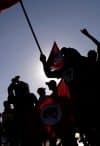
Corruption, Neoliberalism, and the Primary Sector
In discussing the Brazilian situation, it is easy to focus on the dramas of individual politicians and institutions. But to look only at this level of the crisis is to ignore the deeper economic conditions that have driven the country’s politics to the edge.… The deeper contradiction, however, lies with the natural-resource economy, in which government revenue and social spending require royalties that are controlled by a small, unaccountable elite…. The left’s only viable response…is to demand a radical restructuring of the primary sector and a reinvigorated opposition to neoliberalism. | more…

A Letter to Nicholas Georgescu-Roegen, July 31, 1974
In the early 1970s, MR editors Harry Magdoff and Paul Sweezy increasingly introduced ecological themes into the magazine, and began to question the viability of unlimited, exponential economic growth in a limited biosphere. Sweezy, in particular, was deeply interested in ecological problems, a topic he began to write on in this period, in essays such as “Cars and Cities”…, and to which he returned on various occasions until the end of his life.… [In this 1974 letter to the influential ecological economist, Nicholas Georgescu-Roegen, Sweezy outlined] the revolutionary implications of ecology, and the break that these necessitated with pure “economism”—a rupture that only a truly revolutionary socialism could bring about.

In Acting Like It Matters, James McEnteer gives a compassionate account of John Malpede—actor, activist, and co-creator of the political theatre troupe the Los Angeles Poverty Department (LAPD)—and of the Skid Row community that is the organization’s heart and soul. The story of Malpede and the LAPD is one of life as art and art as life, and its protagonists are the dehumanized homeless citizens of Los Angeles and their compatriots in cities across the United States and the world, who represent a growing part of today’s global working class pushed out of the formal economy. | more…

Utterly corrupt corporate and government elites bankrupted Greece twice over. First, by profligate deficit spending benefitting only themselves; second, by agreeing to an IMF “bailout” of the Greek economy, devastating ordinary Greek citizens who were already enduring government-induced poverty, unemployment, and hunger. Finally, in response to dire “austerity” measures, the people of Greece stood up, forming, from their own historic roots of resistance, Syriza—the Coalition of the Radical Left. For those who caught the Syriza wave, there was, writes Helena Sheehan, a minute of “precarious hope.” | more…
France and the United States
Following the July 14, 2016, massacre in Nice, French President François Hollande once again extended for three months a state of emergency that was to have ended on July 26. An initial, twelve-day state of emergency had been declared after the Paris attacks and extended for three months by a law of November 2015. Still another three-month extension was added and came to an end on May 26, only to be extended for two additional months. Despite the obvious ineffectiveness of such a measure…it has been extended yet again, through January 2017.… This normalization of the “state of exception” has provoked only a muted public reaction. France has thus entered into a permanent state of emergency. This choice is not the result of exceptional events to which the country must respond, but rather expresses an intention to change the political system, as shown by the move to constitutionalize the state of emergency. | more…

Aleida Guevara March is the daughter of Che Guevara and Aleida March. She is a pediatrician at William Soler Children’s Hospital in Havana, and teaches at the Escuela Latina-Americana de Medicina and at a primary school for children with disabilities. As a member of the Cuban Communist Party, she often participates in political debates across the globe. As a pediatrician, she has worked in Angola, Ecuador, Nicaragua, and Venezuela. She has two adult daughters and works closely with the Centro de Estudios Che Guevara, where her mother is the director.

On the afternoon of November 15, 2013, 150 police officers raided the Colony Arms, a low-income housing complex on Detroit’s East Side. One resident described the scene: “I saw…cop cars with the sirens…some kind of tank blocking the back alley, at least two helicopters doing I don’t know what…. The officers had real, real long rifles. It was like the army or something…like an invasion….” In all, thirty arrests were made, twenty-one related to parking violations. These arrests yielded a total of zero convictions. The raid occurred on a Friday; all those arrested were released from jail by Monday. The raid was declared a resounding success by the Detroit Police Department (DPD) and all of the city’s major media outlets. The raid on the Colony Arms inaugurated Operation Restore Order, a series of seventeen paramilitary police operations carried out between 2013 and 2015. Over the course of the operation, police made over a thousand arrests; as in the Colony Arms raid, however, these yielded little in the way of prosecutions. | more…

Or, A Woman Connects Oppressions
Alice Walker is a Pulitzer Prize-winning novelist, poet, and activist. Her most recent book is
The World Will Follow Joy (New Press, 2013). This article was originally a speech delivered at a Peace for Cuba Rally on February 1, 1992, and first published in
MR in June 1994. Walker’s words remain as relevant today as when they were first spoken.
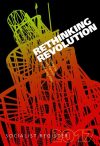
One hundred years ago, “October 1917” galvanized leftists and oppressed peoples around the globe, and became the lodestar for 20th century politics. Today, the left needs to reckon with this legacy—and transcend it. Social change, as it was understood in the 20th century, appears now to be as impossible as revolution, leaving the left to rethink the relationship between capitalist crises, as well as the conceptual tension between revolution and reform. | more…
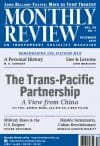
In October 2016, the Sveriges Riksbank (Swedish Central Bank) Prize in Economic Sciences in Memory of Alfred Nobel—commonly but incorrectly called the Nobel Prize in Economics—was awarded to two European-born, U.S.-based economists, Oliver Hart and Bengt Holmström, for their work on contracts related to executive pay. Hart and Holmström were lauded for having theorized what was thought to be the optimal mix of risk and incentives in pay packages for corporate executives, thereby determining the appropriate combination of basic salary, bonuses, and share options. In other words, they received the Riksbank Nobel Memorial Prize for their efforts to rationalize the exorbitant paychecks of CEOs and other corporate leaders—a direct service to big business. | more…
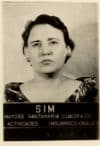
Margaret Randall, Haydée Santamaría, Cuban Revolutionary: She Led by Transgression (Durham, NC: Duke University Press, 2015), 248 pages, $23.95, paperback.
In the early 1950s, Haydée Santamaría Cuadrado moved from a rural Cuban sugar plantation to Havana, to live with her younger brother Abel. Together, they would help to establish a revolutionary movement that would change the history of their country. Haydée, as she is known throughout Cuba—Yeyé to her friends—was one of only two women among 160 men who took part in attacks on Batista’s army barracks at Moncada and Bayamo on July 26, 1953, which sparked the Cuban Revolution.… In her recent book, poet and scholar Margaret Randall, who lived in Cuba in the 1970s and became friends with Haydée, has captured the essence of this exemplary woman. | more…
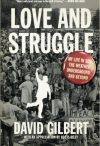
“We will fight from one generation to the next.” In the 1960s and 1970s we anti-imperialists in the U.S. were inspired not only by that slogan from Vietnam but even more by how they lived it with their 2000-year history of defeating a series of mighty invaders. At the same time we felt that we just might be on the cusp of world revolution in our lifetimes. Vietnam’s ability to stand up to and eventually defeat the most lethal military machine in world history was the spearhead. Dozens of revolutionary national liberation struggles were sweeping what was then called the “Third World,” today referred to as the “global South.” There was a strategy to win, as articulated by Che Guevara: to overextend and defeat the powerful imperial beast by creating “two, three, many Vietnams.” A range of radical and even revolutionary movements erupted within the U.S. and also in Europe and Japan.… Tragically, the revolutionary potential that felt so palpable then has not been realized.… Today, fighting from one generation to the next takes on new relevance and intense urgency. | more…










